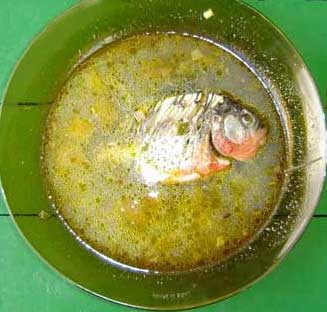The Great Wall of China - On walls in general
(Continued from: The Great Wall of China - A short Introduction)
 Walls and wall building have played a very important role in Chinese culture. These people, from the dim mists of prehistory have been wall-conscious; from the Neolithic period – when ramparts of pounded earth were used - till the Communist Revolution, walls were an essential part of any village. Not only towns, villages, the houses and the temples within these cities were somehow walled, but also the houses had no windows overlooking the street, thus giving the feeling of wandering around a huge maze. The name for “city” in Chinese (ch’eng) means wall, and over these walled cities, villages, houses and temples presides the god of walls and mounts[1], whose duties were, and still are to protect and be responsible for the welfare of its inhabitants. Thus a great and extremely laborious task such as constructing a wall, which was supposed to run throughout the country, must not have seemed such an absurdity.
Walls and wall building have played a very important role in Chinese culture. These people, from the dim mists of prehistory have been wall-conscious; from the Neolithic period – when ramparts of pounded earth were used - till the Communist Revolution, walls were an essential part of any village. Not only towns, villages, the houses and the temples within these cities were somehow walled, but also the houses had no windows overlooking the street, thus giving the feeling of wandering around a huge maze. The name for “city” in Chinese (ch’eng) means wall, and over these walled cities, villages, houses and temples presides the god of walls and mounts[1], whose duties were, and still are to protect and be responsible for the welfare of its inhabitants. Thus a great and extremely laborious task such as constructing a wall, which was supposed to run throughout the country, must not have seemed such an absurdity.However, it is indeed a common mistake to perceive the Great Wall as
 a single architectural structure, and it would also be erroneous to assume that it was built during a single dynasty. For the building of the wall spanned the various dynasties, and each of these dynasties somehow contributed to the refurbishing and the construction of a wall, whose foundations had been laid many centuries ago. It is during the fourth and third century B.C. that each Warring State started building walls to protect their kingdoms, both against one another and against the northern nomads. Especially three of these states: the Ch’in, the Chao and the Yen, corresponding respectively to the modern provinces of Shensi, Shanzi and Hopei, over and above building walls that surrounded their kingdoms, laid also the foundations on which Ch’in Shih Huang Di would build his first continuous Great Wall. (To be continued...)
a single architectural structure, and it would also be erroneous to assume that it was built during a single dynasty. For the building of the wall spanned the various dynasties, and each of these dynasties somehow contributed to the refurbishing and the construction of a wall, whose foundations had been laid many centuries ago. It is during the fourth and third century B.C. that each Warring State started building walls to protect their kingdoms, both against one another and against the northern nomads. Especially three of these states: the Ch’in, the Chao and the Yen, corresponding respectively to the modern provinces of Shensi, Shanzi and Hopei, over and above building walls that surrounded their kingdoms, laid also the foundations on which Ch’in Shih Huang Di would build his first continuous Great Wall. (To be continued...)[1] Peter Lum, The Purple Barrier The Story of the Great Wall of China,








